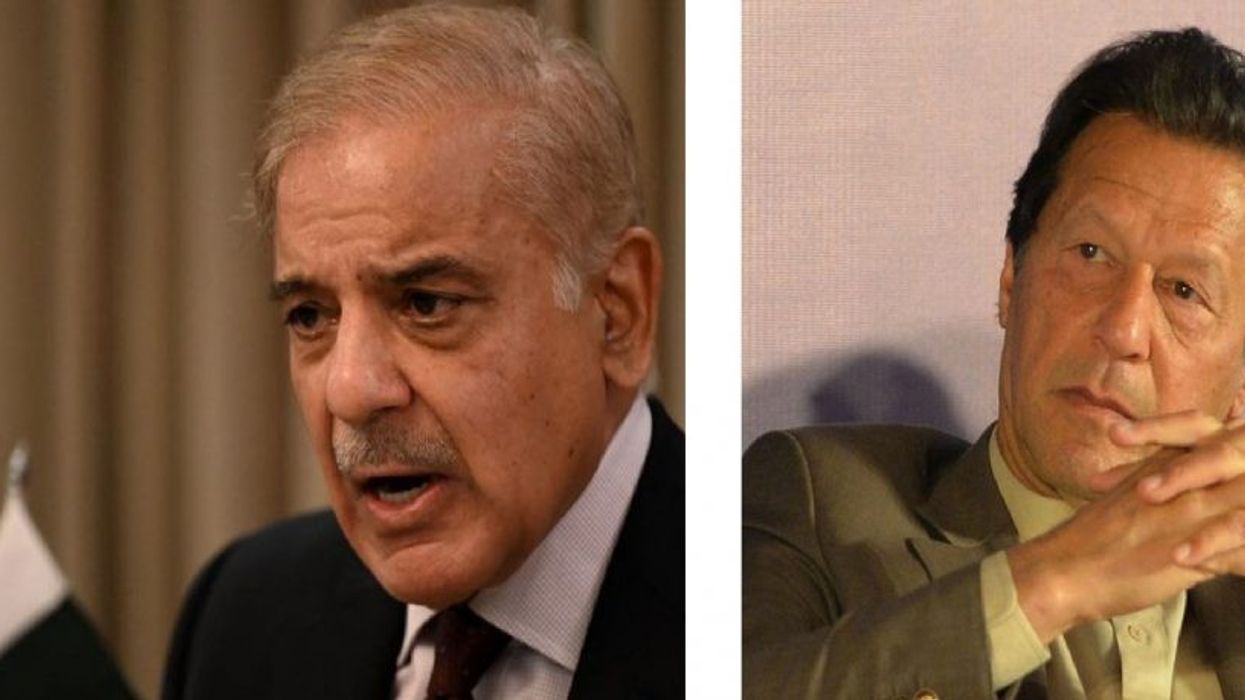Pakistan Prime Minister Shehbaz Sharif said on Thursday (26) that the National Assembly would decide the date for fresh polls. "I want to clarify to the leader of this group (PTI), your dictation won't work. This house will decide when to hold elections," said the premier while speaking on the floor of the lower house of parliament.
PM Shehbaz said he is willing to talk to the PTI chief, but "blackmailing" won’t work.
Pakistan’s ousted prime minister Imran Khan disbanded a protest march by supporters on Thursday after clashes with police outside parliament but threatened that they would return unless an election was called within six days.
Khan had rallied thousands of supporters to Islamabad, with plans to occupy sensitive parts of the capital until prime minister Shehbaz Sharif gave in to his demand for new polls, but Khan told his followers on Thursday morning to step back, while delivering a fresh ultimatum.
"I'm giving you six days. You announce elections in six days," Khan said from atop a truck after he and thousands of his supporters reached the city.
He said parliament should be dissolved to hold elections in June and warned the government that he will lead a march on the capital again if it didn't meet his demands.
Khan's attempt to destabilise Sharif's month-old coalition government risks fuelling tensions during an economic crisis that has forced Pakistan to seek urgent help from the International Monetary Fund.
Khan said that the confidence vote that toppled him last month was the result of a US conspiracy, and he is demanding a fresh election to show he has national support.
Army-Imran Khan fallout
He had reportedly fallen out with the country's powerful military before he was removed by a united opposition that accused him of mismanaging the government, the economy and foreign relations.
Washington and the Pakistan military have denied playing any part in Khan's downfall. Pakistan's two main parties, led by the rival Bhutto and Sharif families, partnered up to oust him.
Khan’s call for a march on Islamabad had prompted the government to seal off main roads leading to the capital, but late on Wednesday (25), the Supreme Court ordered that the barriers be removed, telling the government to designate an open venue for Khan's supporters to gather.
The protesters didn't follow the court orders, however, and hundreds reached the heart of the capital, where they fought running battles with police over several hours before Khan and the main body of the rally entered the city.
Police fired tear gas and baton-charged the vanguard of the protest march, and detained hundreds of protesters, who had set fire to trees, vehicles, shops, and a bus station on the main thoroughfare leading to parliament.
At least 18 police and paramilitary troops were wounded, said Information Minister Marriyum Aurangzeb, after dozens of the protesters breached the last line of security outside the parliament.
There were also clashes in several cities in Punjab province and the southern port city of Karachi.
PM Shehbaz warns Imran Khan, says 'Your dictation won't work...'
Imran gave 6-day ultimatum to Pakistan govt to hold fresh polls




